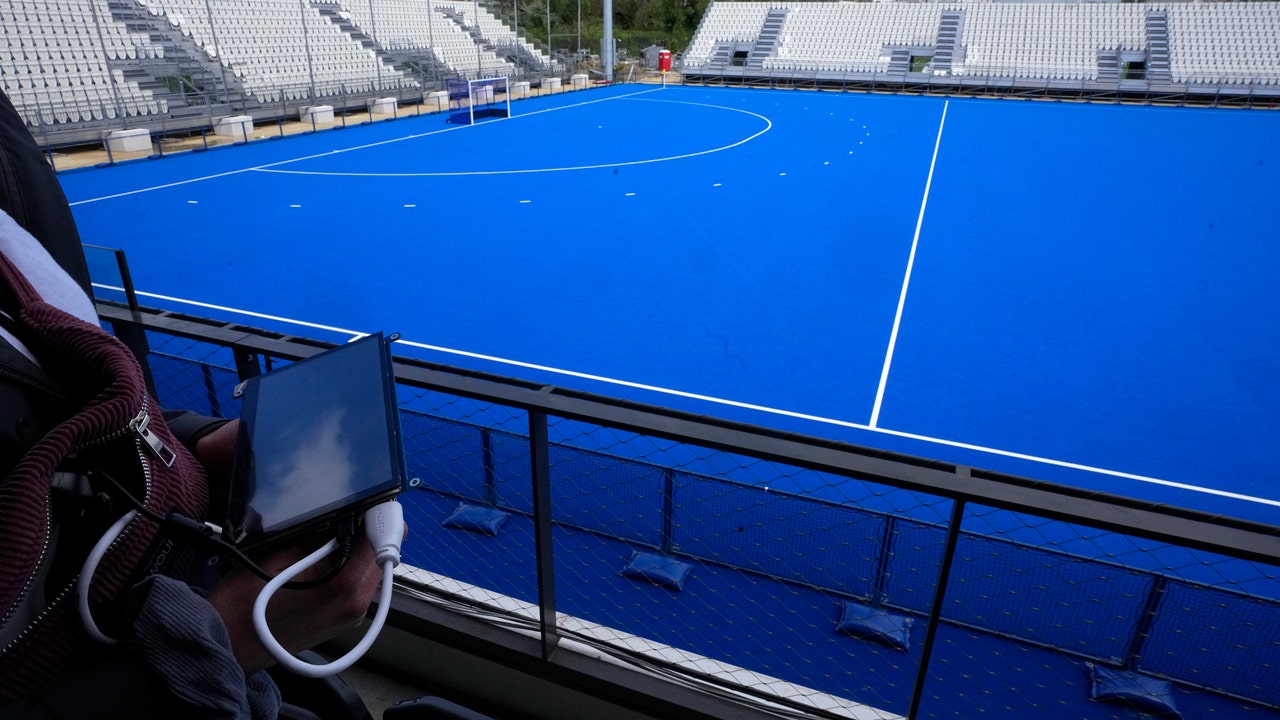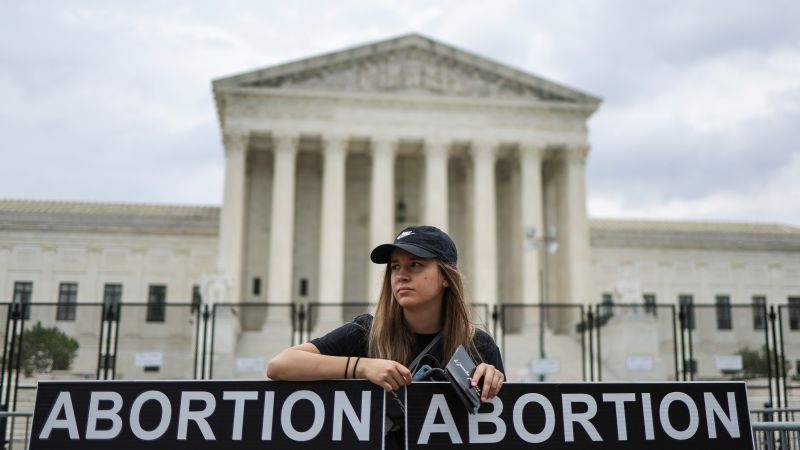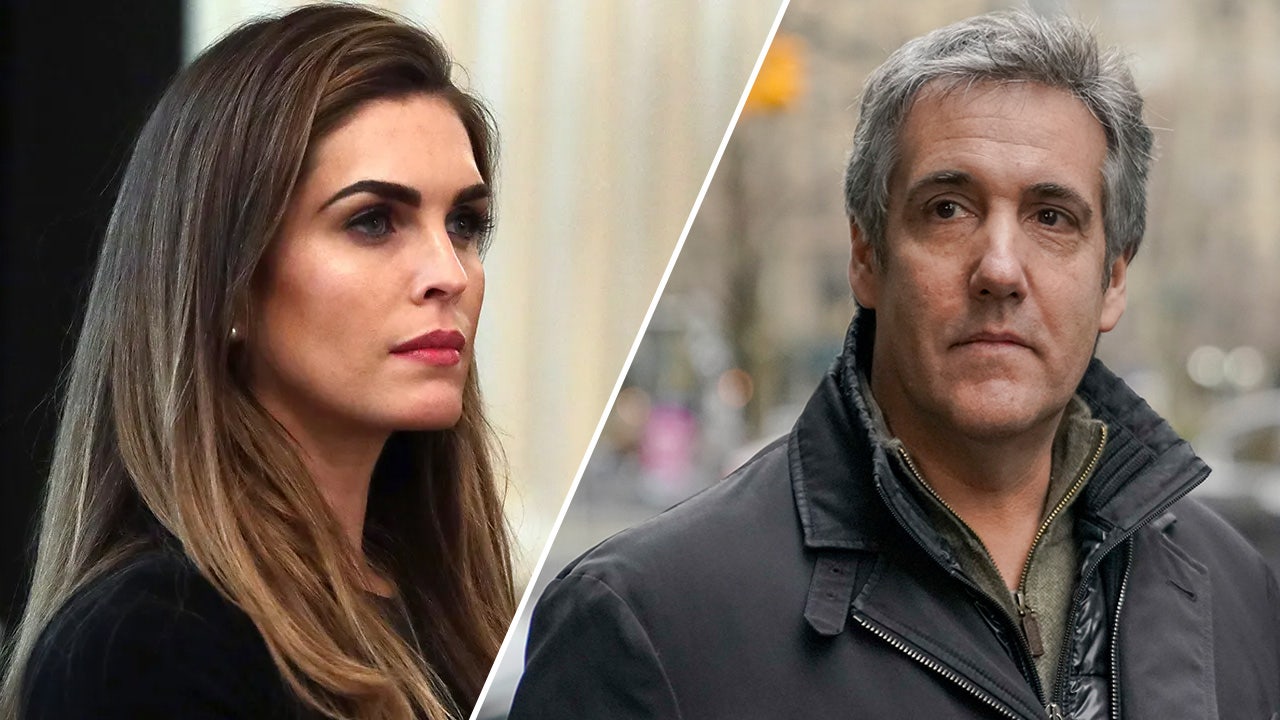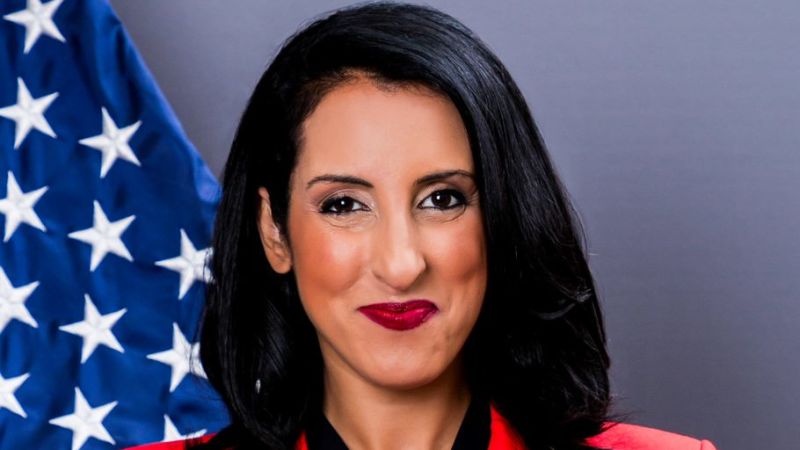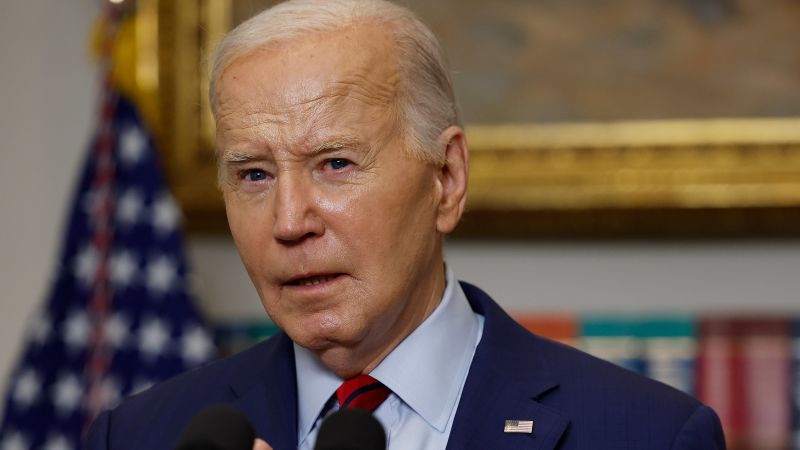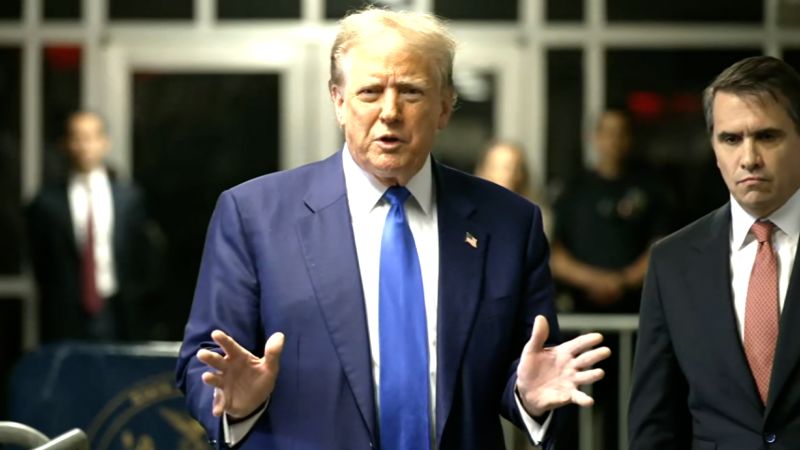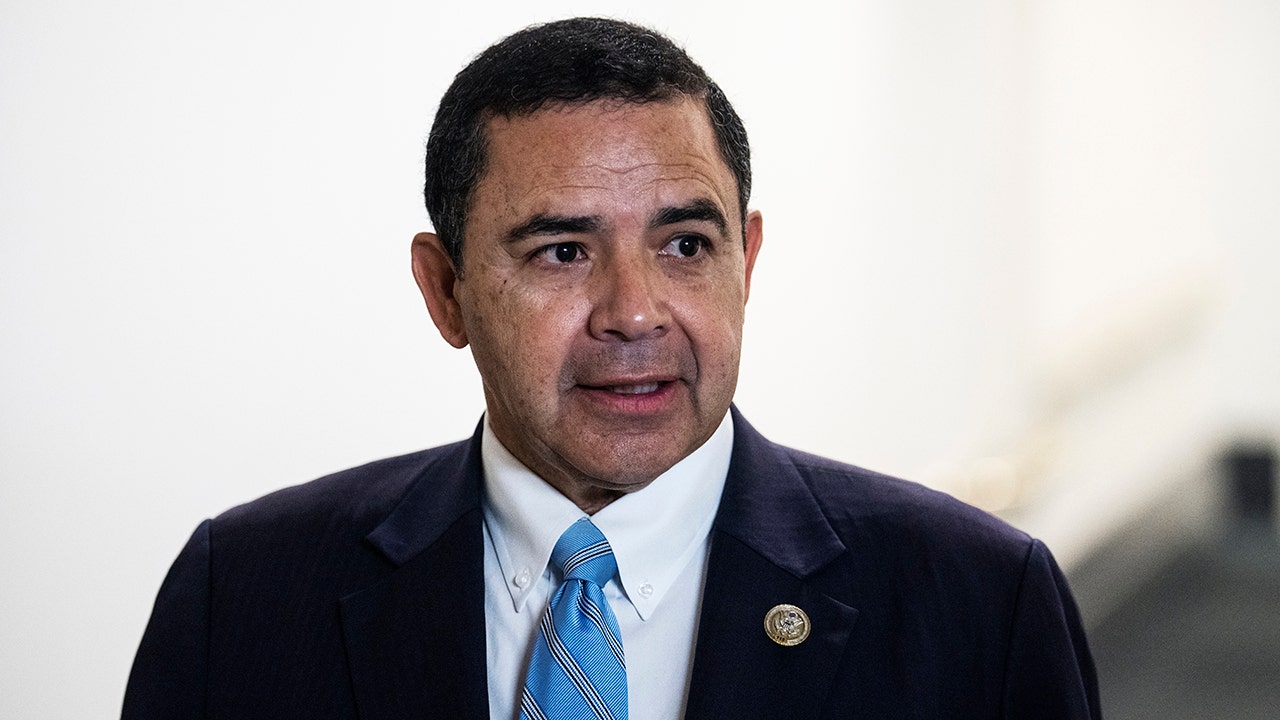Two years after ending the national right to abortion by overturning Roe v. Wade, the Supreme Court will scrutinize one of the marquee efforts by the Biden administration to preserve abortion access in the post-Roe v. Wade era.
In a case being heard by the court Wednesday, the Biden administration is challenging Idaho’s enforcement of its abortion ban in medical emergencies, putting a spotlight on what has been one of the most politically explosive flashpoints in the aftermath of Roe’s demise.
The Justice Department maintains that federal law requires hospitals to offer abortions if necessary to stabilize the health of emergency room patients, even in states like Idaho that ban that procedure. At the time the lawsuit was filed, Attorney General Merrick Garland characterized the case as part of the department’s promise to “work tirelessly to protect and advance reproductive freedom” in the wake of Roe’s reversal.
The lawsuit has proceeded somewhat under the radar and has been overshadowed by the other blockbuster abortion case at the Supreme Court this year, concerning the federal regulations for abortion pills. Yet, the Idaho case could yield the most significant ruling from the court on abortion since the 2022 Roe reversal and one that could further elevate an issue Democrats want front and center in the 2024 election this November.
Idaho argues that the Biden administration is trying to retrofit the federal law known as EMTALA – or the Emergency Medical Treatment and Active Labor Act – to “create a nationwide abortion mandate in hospital emergency rooms.”
Idaho’s abortion law has a narrow exemption for abortions provided to save a pregnant woman’s life. However, the Justice Department argues that federal law overrides state abortion bans that prohibit emergency room doctors from offering the procedure to women whose pregnancies are causing medical emergencies that are not yet life-threatening.
“Many pregnancy complications do not pose a threat to the woman’s life when she arrives at the emergency room – but delaying care until necessary to prevent her death could allow her condition to deteriorate, placing her at risk of acute and long-term complications,” the Justice Department told the high court in a brief.
Anti-abortion advocates meanwhile hope the Supreme Court will use the case to rebuke what they say is an unlawful Biden administration effort to undermine its decision in Dobbs v. Jackson, the ruling that overturned Roe.
“This is an opportunity for the Supreme Court to push back against the Biden administration’s campaign of massive resistance to the Dobbs decision,” said Roger Severino, a vice president of domestic policy for the conservative Heritage Foundation.
A bipartisan Congress enacted EMTALA in 1986 to address the issue of “patient dumping,” the practice by hospitals to refuse emergency room care to patients, often uninsured, in order to save costs.
The Justice Department sued Idaho under the law just over a month after the Supreme Court’s Dobbs ruling cleared the way for the state to enact a strict abortion ban, and within weeks the administration secured a lower court order blocking Idaho’s abortion ban in scenarios of medical emergencies. Until the order was put on pause by higher courts, including the Supreme Court, it was the rare example of a successful action the Biden administration was able to take to try to mitigate the effects of Roe’s reversal.
It is also a case that highlights what has been a particularly troubling narrative for the anti-abortion movement post-Dobbs: that abortion bans – even those with ostensible life-of-the-mother exemptions – are putting the health of pregnant women in jeopardy.
“Those stories are hugely sympathetic to the public, to voters,” said Gretchen Borchelt, the vice president for reproductive rights and health at the National Women’s Law Center, which is supporting the Biden administration in the case. “I think that crystallizes for people the fallout of the Dobbs decision in a way that nothing else is.”
Abortion on the ballot in AZ this November
John Bursch, the vice president of appellate advocacy for the conservative legal group Alliance Defending Freedom, which is Idaho’s co-counsel in the case, told CNN that it was a “scare tactic” to claim that Idaho’s ban did not adequately protect women facing complications from their pregnancy, as he sought to distance the case from abortion politics.
“Protecting the mother’s life is always possible when that’s the only choice that you have,” he said. “So, this case really isn’t about that. And it’s really not even about abortion, although the other side is trying to make it about that.”
(Health care providers in Idaho have said that in the few months that the abortion ban has been in effect, it has prevented them from providing abortions to patients who were suffering pregnancy complications causing them organ failure and other severe conditions – including conditions that would threaten their future fertility.)
Bursch framed the case around the question of “whether EMTALA was an intentional attempt by the federal government to take control of the state practice of medicine.”
“And no one ever thought that before Dobbs,” he said.
In the other major abortion case on the docket this term, a challenge brought by anti-abortion doctors to how the federal government has regulated the abortion drug known as mifepristone, the justices in oral arguments indicated they were leaning towards rejecting the case because the plaintiffs lacked standing to bring the suit.
“Even if they kick out the mifepristone case on standing, to decide to make it harder for people get emergency abortion care is going to have huge ramifications for voters,” Borchelt said.
In a troubling sign for the administration in this case, the Supreme Court paused lower court rulings that partially blocked Idaho’s abortion ban and agreed to take up the case before the lower courts had fully considered it on the merits. There were no public dissents to those moves.
Must hospitals provide ‘equal’ emergency treatment for pregnant women and their fetuses?
The case could turn on how the justices read the term “unborn child” in EMTALA. The term is referenced multiple times in the law, which includes scenarios in its definition of medical emergencies where the health of an unborn child is in serious jeopardy and transfers of patients in labor that would put the safety of their unborn child at risk are restricted.
The references to the “unborn child” were added by Congress in 1989 to make clear the EMTALA’s protections applied to women who showed up to hospitals because they were in labor or facing other pregnancy-related medical emergencies.
Supreme Court briefs filed by Idaho point to the language to argue that EMTALA’s “text demands equal treatment for ‘the unborn child.’”
“To say that a statute that requires the protection of the unborn somehow requires doctors to take their lives in emergency rooms, it’s just nonsensical,” Bursch told CNN.
The Charlotte Lozier Institute, an anti-abortion think tank, said in a friend-of-the-court brief that EMTALA “expressly protects the lives of unborn children” and that it requires hospitals “to follow the two-patient paradigm to protect both the mother and her unborn child.”
“The United States’ attempt to diminish the ‘unborn child’s’ life as secondary—one that must be protected only if her mother’s health is not threatened but loses all value if her mother’s health is in jeopardy—is atextual,” the brief said. “Congress expected hospitals and physicians to preserve both lives wherever possible.”
Idaho’s opponents counter that the provisions in question were meant to ensure that ER patients whose pregnancies were in medical trouble would receive treatment for those complications, even if the women themselves did not face serious risks to their health or possible death.
“I think it’s incredibly dangerous, the implications of what the argument Idaho is trying to push, with respect to the term and the use of the unborn child in the statute,” said Alexa Kolbi-Molinas, the deputy director of the Reproductive Freedom Project of the ACLU, which filed a friend-of-the-court brief in the case.
Abortion rights advocates fear that, beyond just the dispute over Idaho’s abortion ban, the conservative majority will issue a ruling that will encourage the anti-abortion movement to take more aggressive steps in their push towards fetal personhood.
“We have this case for the court where they are going to be talking about what the term ‘unborn child’ means. And so even though it’s going to be specific to EMTALA, and its definition there, what we’re going to see is anti-abortion folks seize on that, policymakers seize on what the court says,” said Borchelt of the National Women’s Law Center.
Bursch said it was “laughable” to claim the case, depending on the court rules, could lay groundwork for fetal personhood and framed the case as being more about states’ authority to regulate medicine within their borders.
“This case is about whether EMTALA regulates that state’s practice of medicine and overrides Idahoans’ choice to preserve life,” Bursch said.


